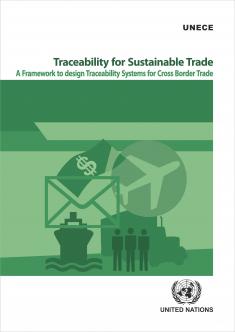 Consumers and producers are increasingly interested in knowing how products are made and whether there are any adverse environmental or social impacts. While two products may look or feel similar, consumers may still distinguish between them on the basis of certain intangible policy claims, such as whether they are “organic” or “sustainably produced”. Since these types of claims are difficult or impossible to measure merely by looking at the product, it is necessary to have mechanisms to “trace” these products and the policy claims about them.
Consumers and producers are increasingly interested in knowing how products are made and whether there are any adverse environmental or social impacts. While two products may look or feel similar, consumers may still distinguish between them on the basis of certain intangible policy claims, such as whether they are “organic” or “sustainably produced”. Since these types of claims are difficult or impossible to measure merely by looking at the product, it is necessary to have mechanisms to “trace” these products and the policy claims about them.Traceability systems are often private sector driven as producers seek to promote certain claims about their products, however, government agencies may also have a significant role. Government intervention increases the complexity of traceability systems as it introduces new elements such as data-sharing, confidentiality of information, governance and regulatory compliance. This has the potential to impact on trade, especially when governments seek to protect consumers by requiring certain documents or data from traders in order to ensure the veracity of policy claims.
The United Nations Economic Commission for Europe has developed a framework for designing traceability systems (ECE/TRADE/429) in order to ensure that traceability is efficiently dealt with in cross-border trade so that it can better contribute to the sustainable development goals. This framework should be useful for government officials and private sector actors involved in designing and implementing traceability systems.


